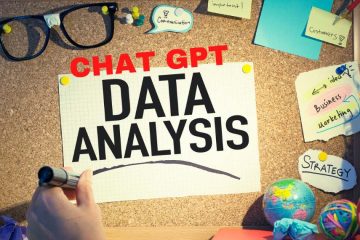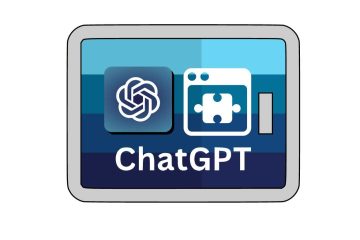Artificial Intelligence (AI) refers to the development of computer systems that can perform tasks that would normally require human intelligence, such as problem-solving, decision making, and natural language processing. It involves the use of algorithms and machine learning techniques to analyze large amounts of data and make predictions based on that analysis.
ChatGPT, on the other hand, is a type of AI model developed by OpenAI that is specifically designed to generate human-like text. It uses a transformer-based architecture and is trained on a massive dataset of text from the internet, allowing it to generate responses to natural language queries with high accuracy.
Importance of omnichannel marketing
Omnichannel marketing refers to a customer-centric approach to marketing that seeks to provide a seamless, integrated customer experience across multiple channels. This includes channels such as websites, social media, email, in-store, and mobile. The goal of omnichannel marketing is to create a consistent and cohesive brand experience for customers, regardless of the channel they use to engage with the brand.
Purpose of integrating AI and chatGPT in omnichannel marketing
The integration of AI and chatGPT in omnichannel marketing allows for the creation of more personalized and efficient customer experiences. By using chatGPT to handle customer inquiries and AI to analyze customer behavior, brands can provide targeted and relevant responses in real-time, improving the overall customer experience. Additionally, the integration of these technologies can automate certain tasks, freeing up time for marketers to focus on other strategic initiatives. The purpose of integrating AI and chatGPT in omnichannel marketing is to drive increased efficiency, improve the customer experience, and enhance the personalization.
Understanding the AI and chatGPT Technology

Artificial Intelligence (AI) is a broad field that encompasses various technologies and techniques, including machine learning, computer vision, and natural language processing. AI systems use algorithms and statistical models to analyze data and make predictions based on that analysis.
ChatGPT, as a type of AI, uses transformer-based architecture and is trained on a massive dataset of text from the internet, allowing it to generate human-like responses to natural language queries. It is designed to be used in natural language applications, such as chatbots, virtual assistants, and customer service bots.
Key features of chatGPT
Some key features of chatGPT include:
- Natural language generation: ChatGPT has been trained on a large dataset of text and is able to generate human-like responses to natural language queries.
- Contextual understanding: ChatGPT is able to understand the context of a conversation and generate responses accordingly.
- Continuous learning: ChatGPT can continue to learn and improve over time through additional training and fine-tuning.
Benefits of using AI and chatGPT in marketing
There are several benefits to using AI and chatGPT in marketing, including:
- Increased efficiency and productivity: AI and chatGPT can automate certain tasks, freeing up time for marketers to focus on other strategic initiatives.
- Improved customer experience: By using chatGPT to handle customer inquiries and AI to analyze customer behavior, brands can provide targeted and relevant responses in real-time, improving the overall customer experience.
- Enhanced personalization: The integration of AI and chatGPT allows for the creation of more personalized customer experiences, leading to increased customer engagement and loyalty.
Integration of AI and chatGPT in Omnichannel Marketing
Omnichannel marketing refers to a customer-centric approach to marketing that seeks to provide a seamless, integrated customer experience across multiple channels. This includes channels such as websites, social media, email, in-store, and mobile. The goal of omnichannel marketing is to create a consistent and cohesive brand experience for customers, regardless of the channel they use to engage with the brand.
Examples of AI and chatGPT integration in omnichannel marketing
There are several ways that AI and chatGPT can be integrated into omnichannel marketing strategies, including:
- Chatbots: Chatbots powered by chatGPT can handle customer inquiries and provide relevant responses in real-time, improving the overall customer experience.
- Virtual assistants: Virtual assistants powered by chatGPT can provide personalized recommendations and suggestions to customers based on their behavior and preferences.
- Customer service bots: Customer service bots powered by chatGPT can handle customer inquiries and provide relevant information, reducing the need for human customer service representatives.
Steps to integrate AI and chatGPT in omnichannel marketing
The following are the steps to integrate AI and chatGPT into an omnichannel marketing strategy:
- Define goals and objectives: Clearly define what you hope to achieve with the integration of AI and chatGPT in your omnichannel marketing strategy.
- Assess current infrastructure: Assess your current technology infrastructure to determine what changes need to be made to integrate AI and chatGPT.
- Choose a chatGPT model: Choose a chatGPT model that is well-suited for your specific use case and has the features you need.
- Train the model: Train the chatGPT model on a dataset of text relevant to your industry and business goals.
- Integrate with omnichannel marketing channels: Integrate the chatGPT model with your existing omnichannel marketing channels, such as chatbots, virtual assistants, and customer service bots.
- Monitor and optimize: Continuously monitor the performance of the chatGPT model and make optimizations as needed to improve its effectiveness in your omnichannel marketing strategy.
The Advantages of Integrating AI and chatGPT in Omnichannel Marketing

Focus on customer experience
The integration of AI and chatGPT in omnichannel marketing should always prioritize the customer experience. This means providing relevant, personalized responses that add value to the customer’s experience with your brand.
Continuously train and optimize the chatGPT model
The chatGPT model should be continuously trained and optimized to ensure that it is providing the best possible responses to customer inquiries. This may include updating the training data, fine-tuning the model’s parameters, and monitoring its performance over time.
Ensure data privacy and security
When integrating AI and chatGPT into your omnichannel marketing strategy, it is important to ensure that customer data is protected and secure. This may involve implementing strict data privacy policies, using encrypted communication channels, and regularly auditing the chatGPT model for any potential security vulnerabilities.
Collaborate with cross-functional teams
The integration of AI and chatGPT into omnichannel marketing often requires collaboration between various departments, such as marketing, IT, and customer service. It is important to establish clear communication and roles between these teams to ensure a successful implementation.
Continuously measure and evaluate
The impact of AI and chatGPT on your omnichannel marketing strategy should be continuously measured and evaluated to ensure that it is meeting your goals and providing value to your customers. This may involve tracking metrics such as customer satisfaction, response time, and conversion rates.
Challenges and Solutions in Integrating AI and chatGPT in Omnichannel Marketing
Difficulty in developing a chatGPT model that is relevant and personalized
One of the biggest challenges in integrating AI and chatGPT into omnichannel marketing is developing a model that is relevant and personalized for each customer. This requires a large, high-quality training dataset that accurately reflects the diverse range of customer inquiries and preferences.
Ensuring data privacy and security
Ensuring the privacy and security of customer data is a major challenge when integrating AI and chatGPT into omnichannel marketing. This requires implementing strict data privacy policies, using encrypted communication channels, and regularly auditing the chatGPT model for any potential security vulnerabilities.
Overcoming resistance to change
Another challenge in integrating AI and chatGPT into omnichannel marketing is overcoming resistance to change from stakeholders and customers. This may require educating stakeholders on the benefits of AI and chatGPT, demonstrating the technology’s effectiveness, and addressing any concerns about data privacy and security.
Solutions for overcoming challenges
The following are solutions for overcoming the challenges in integrating AI and chatGPT into omnichannel marketing:
- Invest in high-quality training data: To develop a chatGPT model that is relevant and personalized, it is important to invest in high-quality training data that accurately reflects the diverse range of customer inquiries and preferences.
- Implement strict data privacy policies: Implementing strict data privacy policies and using encrypted communication channels can help ensure the privacy and security of customer data.
- Provide education and training: Providing education and training for stakeholders on the benefits of AI and chatGPT can help overcome resistance to change.
- Continuously monitor and optimize: Continuously monitoring and optimizing the chatGPT model can ensure that it remains relevant and personalized for each customer.
- Regularly evaluate the impact of AI and chatGPT: Regularly evaluating the impact of AI and chatGPT on your omnichannel marketing strategy can help ensure that it is meeting your goals and providing value to your customers.
Conclusion
In conclusion, the integration of AI and ChatGPT in omnichannel marketing strategies offers many benefits for businesses, including increased efficiency and productivity, improved customer experience, and enhanced personalization. ChatGPT, as a type of AI, uses transformer-based architecture and is trained on a large dataset of text, allowing it to generate human-like responses to natural language queries with high accuracy. When integrated into omnichannel marketing channels such as chatbots, virtual assistants, and customer service bots, ChatGPT can handle customer inquiries and provide relevant, real-time responses. The steps to integrate AI and ChatGPT into an omnichannel marketing strategy include defining goals and objectives, assessing current infrastructure, choosing a ChatGPT model, training the model, integrating it with omnichannel marketing channels, and continuously monitoring and optimizing performance. Businesses that use AI and ChatGPT in their omnichannel marketing strategies can expect to drive increased efficiency, improve the customer experience, and enhance personalization.

Hello, I’m Ali Raza, the brain behind Digital Realm Trends.
Hailing from the vibrant world of digital marketing, I’ve honed my skills over years. Based on my experience, I’m here to unravel the complexities of digital marketing, analytics and paid marketing, crafted for individuals like you. Join me in uncovering the power of digital marketing tools and strategies, fueled by experimentation and insights.




